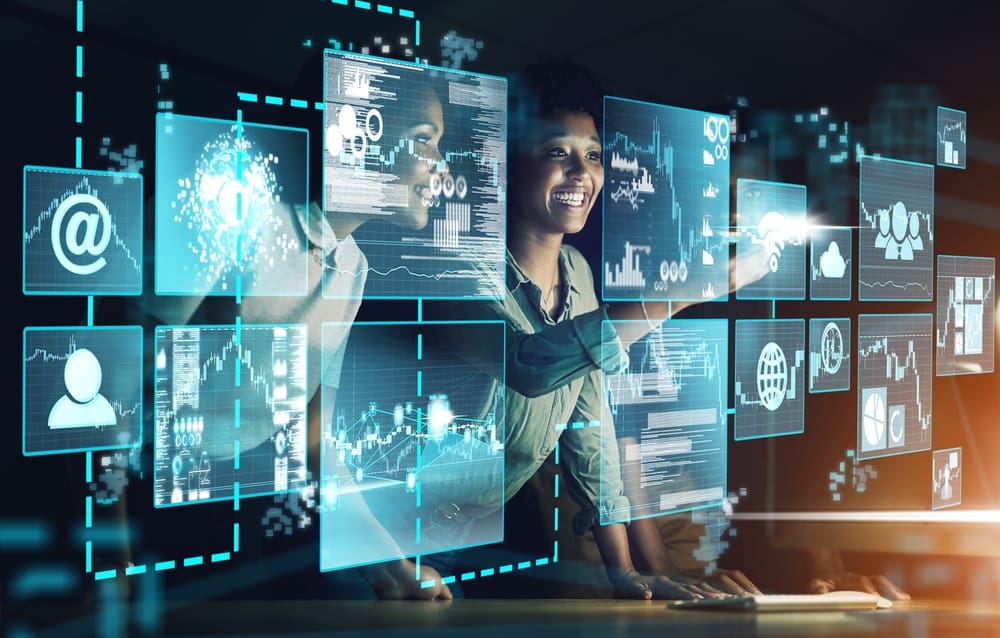In the rapidly evolving landscape of the modern workplace, the advent of artificial intelligence (AI) has sparked a global conversation about the future of employment and the nature of future-proof careers. This transformative technology, once the preserve of science fiction, is now a pivotal driver of change in virtually every sector of the economy, influencing how we work, the jobs we do, and the skills we need to succeed. As we stand on the brink of a new era, it’s essential to explore the impact of artificial intelligence on the labor market and understand how individuals can navigate these changes to build resilient, future-proof careers.
Understanding Artificial Intelligence
At its core, artificial intelligence refers to the simulation of human intelligence in machines that are programmed to think and learn like humans. This encompasses a broad range of applications, from simple tasks like recognizing speech or patterns to more complex operations such as decision-making and problem-solving in unpredictable environments. The versatility and efficiency of AI have made it a cornerstone of innovation, offering unprecedented opportunities for productivity and growth across industries.
AI’s Impact on the Job Market
The integration of AI into the workplace is a double-edged sword. On one hand, it promises to streamline operations, enhance efficiency, and open up new avenues for innovation. On the other hand, it also poses challenges, particularly in terms of job displacement and the need for skill adaptation. Certain roles, especially those involving routine, repetitive tasks, are at higher risk of automation. However, AI also creates opportunities for new jobs that require complex problem-solving, creative thinking, and the ability to work alongside intelligent systems.
Future-Proof Careers in the Age of AI
As the influence of AI on the job market continues to grow, the concept of future-proof careers has gained prominence. These are roles that are less likely to be automated and have a strong growth outlook in the AI-driven future. They typically involve tasks that require emotional intelligence, creativity, strategic thinking, and the ability to manage AI systems rather than being replaced by them. Examples include roles in AI and machine learning development, data analysis, cybersecurity, digital transformation, and more personalized services such as health care, education, and creative industries.
Adapting to the AI Revolution
To thrive in this new era, both individuals and organizations must embrace adaptation and lifelong learning. This means acquiring skills that complement AI, such as digital literacy, data analytics, emotional intelligence, and interdisciplinary knowledge. It also involves staying informed about technological advancements and their implications for the job market. For businesses, this adaptation includes investing in employee training, fostering a culture of innovation, and exploring how AI can augment human capabilities rather than replace them.
Navigating the Future with AI
The journey into an AI-dominated future is filled with both challenges and opportunities. To navigate this landscape successfully, individuals must be proactive in developing the skills and knowledge needed for future-proof careers. This involves not only technical proficiency in AI and related technologies but also the soft skills that AI cannot replicate. Similarly, organizations must play their part by creating environments that encourage innovation, adaptability, and a human-centric approach to technology adoption.
Conclusion
The impact of artificial intelligence on future-proof careers is profound and far-reaching, offering both challenges and opportunities for the workforce. As we advance into this new era, the ability to adapt, learn, and innovate will be key to thriving in an AI-driven world. By embracing the changes brought about by AI, individuals and organizations can unlock new potentials for growth, innovation, and job satisfaction. The future of work may be uncertain, but by preparing for the possibilities that AI brings, we can all be part of shaping a resilient and prosperous career landscape for generations to come.
In navigating the future of work, it’s clear that artificial intelligence will play a pivotal role, not just as a tool for automation, but as a catalyst for innovation and human advancement. As we embrace this future, let us do so with optimism and a commitment to leveraging AI in ways that enhance our collective potential and ensure a bright, secure future for all.
This story was created using AI technology.

















